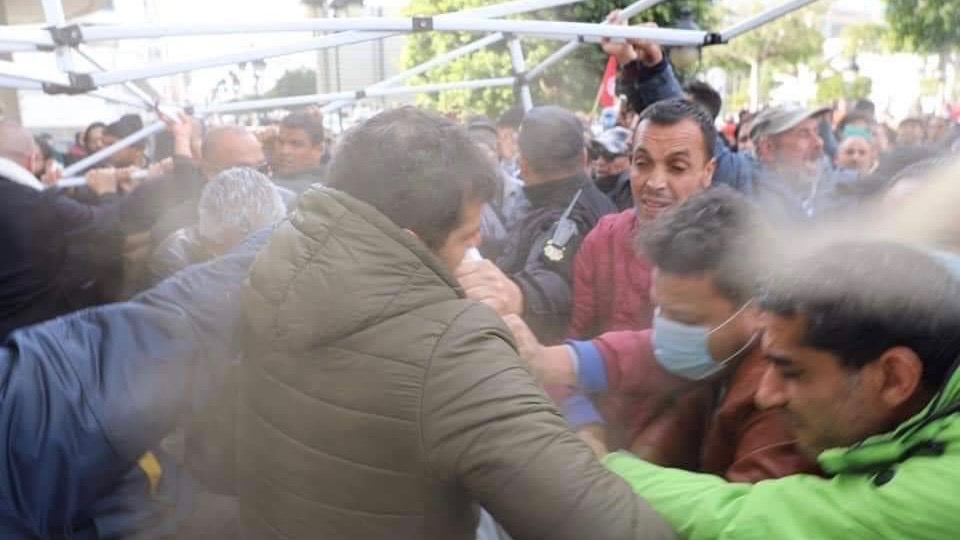On Monday, December 21, Tunisian civil society group ‘Citizens Against the Coup’ announced that it will launch a series of fresh protest demonstrations, including hunger strikes by prominent citizens, against president Kais Saied. Starting July 25, president Saied has taken a series of illegal and undemocratic actions to seize full control over executive and legislative authority in the country. The group, in a press statement on Monday, said that it will carry out public marches, sit-ins and demonstrations to protest the president’s power grab. A number of prominent persons will also launch hunger strikes to protest the “presidential coup d’etat”.
Popular protests against the president have been taking place regularly. On December 17, which marked the 11th anniversary of the Tunisian revolution, hundreds of people protested in the capital Tunis.
Tunisian news media covering the protests over the last week showed security forces repel protesters using tear gas, metal batons, physical attacks and barricades. A number of protesters were reportedly arrested by the security forces which were heavily deployed to limit the protests. They reportedly also prevented people from providing food and water to protesters who were staging overnight sit-ins in and around the Habib Bourguiba Avenue in Tunis.
The protesters are demanding that president Saied reverse all the extraordinary measures taken by him since July and return the country to democratic rule as per the Tunisian constitution. The president had in July fired the prime minister and the cabinet, suspended the parliament and assumed all executive and legislative control. In the following months, he issued presidential decrees allowing him to rule and introduce bills through decrees. He also suspended parts of the constitution, a move which the political opposition, activists and rights groups called unconstitutional and undemocratic. Barely a week ago, he announced a constitutional referendum and fresh general elections to be held in 2022. This unilateral and arbitrary decision has led to widespread condemnation.
Activists have raised alarm over the president turning his back on the Tunisian constitution of 2014 which was scripted after the revolution in 2011. There are concerns about the form and content of the new constitution and its ramifications for civil liberties and human rights in Tunisia.





